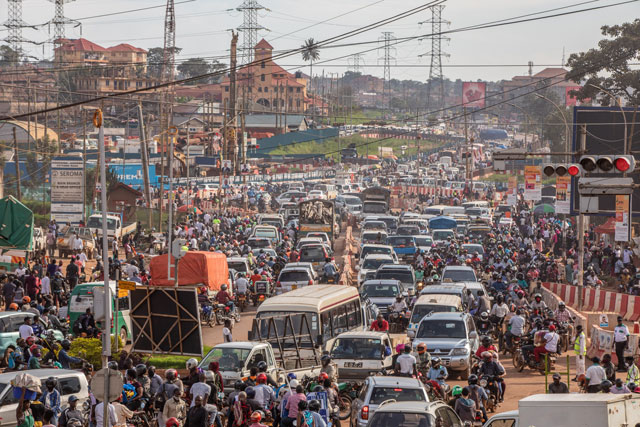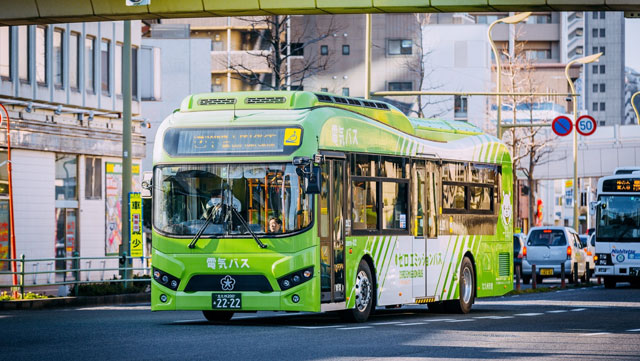
Climate change is the defining challenge of our time, and clean energy and green transport are the keys to addressing it. Less than two decades ago, energy emissions seemed to be spiraling out of control as countries were locked into a debate about who should bear the costs of a green transition. A few years and international agreements later, the energy outlook is more hopeful with renewable sources helping reduce emissions by 1.2% in 2019. Decarbonizing energy is heading in the right direction, but transport — the second biggest global source of greenhouse gas emissions — is in a very different situation.
Emissions from transport increased by 0.5% in 2019, and although this is an improvement compared with 1.9% annual growth since 2000, transport still accounts for about 24% of direct CO2 emissions from fuel combustion. If we are to keep the global temperature rise below 1.5 degrees Celsius, the time to make green transport the norm is now.
At the root of the problem is that transport is a harder sector in which to control emissions than energy. It is highly decentralized with a wide range of actors across many different modes such as rail, road, air, and maritime. Human behavior plays a larger role in demand patterns and is more difficult to manage proactively. Technological innovation in transport has not been primarily oriented to decarbonization, but rather to greater consumer convenience, such as shared riding, with unclear effects on carbon emissions. Before the COVID-19 pandemic slump, growing economies and expanding middle-classes often meant shifts away from public transport toward more and larger vehicles. It does not help that transport also lacks a strong multi-modal planning tradition because of institutions and jurisdictions’ fragmentation.
Transport’s impact on climate change is plain to see. But addressing it will require a shared international commitment and a high degree of cooperation. This week, the World Bank and WRI Ross Center are convening leaders in the sector to do just that. Transforming Transportation 2021 will discuss how COVID recovery can be an opportunity to decarbonize the sector by adopting the so called “avoid, shift, improve” framework. Among other policy tools, this three-part framework aims to avoid unnecessary trips, shift passengers to public transport and non-motorized transport and freight to railways, and improve the vehicles’ fuel efficiency to make lower carbon modes competitive.
The World Bank is already helping countries undertake fossil fuel subsidy reforms and adapt technologies such as e-mobility to their contexts. Innovative initiatives are also on the table, such as regulating the export of used cars — which are, on average, more polluting and less safe — from higher-income to lower-income countries, especially to Africa. WRI designs practical evidence-based policies to support cities and countries implementing mobility solutions that promote inclusion, sustainability, and safety, most recently supporting the transition to electric bus fleets in dozens of cities worldwide.

Zero-emission buses and other large vehicle fleets will be key to accelerating transport decarbonization. Photo by Hans-Johnson/Flickr
The good news is that the decarbonization trajectories of transport and energy are interconnected, allowing for mutually reinforcing reforms. Increased diffusion of disruptive technologies such as e-mobility and electric buses means that the power mix’s greening will ultimately lead to cleaner passenger mobility. Moreover, the use of electricity to produce hydrogen fuel cells could enable decarbonization benefits in the heavy-duty vehicle and maritime sectors. Technological advancement in transport will benefit energy, and vice versa.
Nonetheless, to realize these new technologies’ full potential, policymakers need to provide adequate incentives and take bolder actions. They should seek partnerships with the private sector and academia across industry boundaries. Thanks to regulatory sandboxes, emerging technologies and business models can be tested at a smaller scale to determine how to craft appropriate policies that will produce sustainable results.
Much remains to be done to ensure that the decarbonization of transport systems and infrastructure benefits everyone, especially the poor and those most likely to suffer job and income disruption during the transition. Building greener, more livable, and inclusive cities requires low-carbon transport modes along with better urban planning and infrastructure that encourages cycling and walking and better access to opportunity for more people: shorter, less dangerous commutes, more connections to jobs, health care, education, and green space.
The coronavirus has put many hard-earned achievements — from poverty reduction to climate action — on the line. But it has also opened a brief window of opportunity to help countries rebuild better, addressing obstacles to the low-carbon, more resilient, more equitable economy of tomorrow.
Globally, there are many promising initiatives. In India, the World Bank is helping to convert a 1,360-km stretch of the Ganga River into a modern inland waterway that will cut an estimated 162,000 tons of GHG emissions annually. From Bangalore to Buenos Aires, safer, more extensive cycling networks are providing new ways to get around cities. Across the world, WRI is working to support and revive public transport services in the wake of lockdowns. The Bank is also launching an ambitious global transport trust fund facility to support analytical studies and knowledge exchange with a strong focus on decarbonization. To improve air quality and reduce emissions, the International Finance Corporation, the World Bank’s private sector development arm, is investing in battery-electric buses and e-delivery trucks. To help cities better understand access to opportunity, WRI is pioneering data analytics that show the impact of transportation investments and policy changes at the neighborhood scale.
As COP26 approaches and the world looks to a sustainable COVID-19 recovery, there is a unique window to accelerate transport decarbonization. Political will, technological tools, and economic incentives are aligned to turn transport’s climate trends around. We should not let this opportunity pass by.
This op-ed originally appeared on Devex, official media partner of Transforming Transportation 2021.
Join the all-virtual global conference by registering for free at transformingtransportation.org.
Makhtar Diop is the World Bank’s Vice President for Infrastructure.
Andrew Steer is the President and CEO of World Resources Institute.






